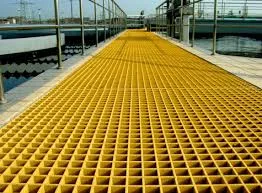
-
 Afrikaans
Afrikaans -
 Albanian
Albanian -
 Amharic
Amharic -
 Arabic
Arabic -
 Armenian
Armenian -
 Azerbaijani
Azerbaijani -
 Basque
Basque -
 Belarusian
Belarusian -
 Bengali
Bengali -
 Bosnian
Bosnian -
 Bulgarian
Bulgarian -
 Catalan
Catalan -
 Cebuano
Cebuano -
 China
China -
 China (Taiwan)
China (Taiwan) -
 Corsican
Corsican -
 Croatian
Croatian -
 Czech
Czech -
 Danish
Danish -
 Dutch
Dutch -
 English
English -
 Esperanto
Esperanto -
 Estonian
Estonian -
 Finnish
Finnish -
 French
French -
 Frisian
Frisian -
 Galician
Galician -
 Georgian
Georgian -
 German
German -
 Greek
Greek -
 Gujarati
Gujarati -
 Haitian Creole
Haitian Creole -
 hausa
hausa -
 hawaiian
hawaiian -
 Hebrew
Hebrew -
 Hindi
Hindi -
 Miao
Miao -
 Hungarian
Hungarian -
 Icelandic
Icelandic -
 igbo
igbo -
 Indonesian
Indonesian -
 irish
irish -
 Italian
Italian -
 Japanese
Japanese -
 Javanese
Javanese -
 Kannada
Kannada -
 kazakh
kazakh -
 Khmer
Khmer -
 Rwandese
Rwandese -
 Korean
Korean -
 Kurdish
Kurdish -
 Kyrgyz
Kyrgyz -
 Lao
Lao -
 Latin
Latin -
 Latvian
Latvian -
 Lithuanian
Lithuanian -
 Luxembourgish
Luxembourgish -
 Macedonian
Macedonian -
 Malgashi
Malgashi -
 Malay
Malay -
 Malayalam
Malayalam -
 Maltese
Maltese -
 Maori
Maori -
 Marathi
Marathi -
 Mongolian
Mongolian -
 Myanmar
Myanmar -
 Nepali
Nepali -
 Norwegian
Norwegian -
 Norwegian
Norwegian -
 Occitan
Occitan -
 Pashto
Pashto -
 Persian
Persian -
 Polish
Polish -
 Portuguese
Portuguese -
 Punjabi
Punjabi -
 Romanian
Romanian -
 Russian
Russian -
 Samoan
Samoan -
 Scottish Gaelic
Scottish Gaelic -
 Serbian
Serbian -
 Sesotho
Sesotho -
 Shona
Shona -
 Sindhi
Sindhi -
 Sinhala
Sinhala -
 Slovak
Slovak -
 Slovenian
Slovenian -
 Somali
Somali -
 Spanish
Spanish -
 Sundanese
Sundanese -
 Swahili
Swahili -
 Swedish
Swedish -
 Tagalog
Tagalog -
 Tajik
Tajik -
 Tamil
Tamil -
 Tatar
Tatar -
 Telugu
Telugu -
 Thai
Thai -
 Turkish
Turkish -
 Turkmen
Turkmen -
 Ukrainian
Ukrainian -
 Urdu
Urdu -
 Uighur
Uighur -
 Uzbek
Uzbek -
 Vietnamese
Vietnamese -
 Welsh
Welsh -
 Bantu
Bantu -
 Yiddish
Yiddish -
 Yoruba
Yoruba -
 Zulu
Zulu
fiberglass water tank
The Advantages of Fiberglass Water Tanks A Comprehensive Overview
In an age where sustainable practices and efficient resource management are increasingly becoming paramount, the choice of materials for water storage systems plays a crucial role. One of the leading solutions that have gained traction in various industries is the fiberglass water tank. Offering a combination of durability, versatility, and cost-effectiveness, fiberglass tanks are increasingly replacing traditional materials like steel and concrete in numerous applications. In this article, we will explore the benefits of fiberglass water tanks, their applications, and why they are becoming the preferred choice for water storage.
Durability and Longevity
One of the most significant advantages of fiberglass water tanks is their durability. Fiberglass, a composite material made from glass fibers and resin, is resistant to corrosion, rust, and degradation. Unlike steel tanks that can suffer from rusting due to exposure to water and air, or concrete tanks that may crack and require extensive maintenance, fiberglass tanks maintain their integrity over time. With proper installation and minimal maintenance, fiberglass tanks can last for decades, making them a sound long-term investment.
Lightweight and Easy to Install
Fiberglass water tanks are considerably lighter than their steel or concrete counterparts. This lightweight nature makes them easier to transport and handle during installation. The reduced weight can also decrease the structural requirements for supporting foundations, resulting in lower installation costs. This ease of installation means that users can often set up their water tanks quickly, minimizing downtime and allowing for immediate use.
Versatility of Applications
Fiberglass tanks are used across various industries and applications, making them highly versatile. They are commonly employed in agriculture for irrigation and livestock watering, in municipal water treatment facilities, and in residential settings for rainwater harvesting and storage. Furthermore, their design can be tailored to meet specific needs, including varying sizes, shapes, and manifold configurations. This adaptability makes fiberglass tanks suitable for both small-scale and large-scale operations.
Resistance to Temperature Fluctuations
fiberglass water tank

Another noteworthy feature of fiberglass water tanks is their ability to withstand a wide range of temperatures. Unlike metal tanks, which can expand and contract significantly with temperature changes, fiberglass maintains its shape and structure. This resistance to thermal fluctuations can be particularly beneficial in regions that experience extreme weather conditions, ensuring that water quality remains stable throughout the year.
Cost-Effectiveness
In terms of affordability, fiberglass water tanks represent a cost-effective solution. While the initial purchase price may be competitive with or slightly higher than other materials, the potential savings in maintenance and downtime can make fiberglass the more economical choice in the long run. Their longevity and resistance to wear and tear also mean that replacement costs are minimized, further enhancing their cost-effectiveness over time.
Environmental Considerations
As sustainability becomes a more significant concern in various industries, the environmental impact of materials used in water storage is coming under scrutiny. Fiberglass water tanks are generally manufactured using processes that can be less harmful to the environment compared to steel production. Additionally, they can be recycled at the end of their life cycle, contributing to the overall sustainability efforts in water resource management.
Conclusion
Fiberglass water tanks are revolutionizing the way industries and individuals manage water storage. With their durability, lightweight nature, versatility, and cost-effectiveness, these tanks present a viable alternative to traditional storage solutions. As the demand for efficient, sustainable, and reliable water storage continues to grow, fiberglass tanks are poised to play an essential role in meeting these needs. Whether for agricultural use, municipal water systems, or residential applications, fiberglass water tanks offer a forward-thinking solution, ensuring that water is managed effectively and sustainably for generations to come.
Investing in a fiberglass water tank not only promises a reliable and long-lasting storage solution but also contributes to a more sustainable approach to water resource management. As such, they represent a wise choice for anyone looking to navigate the complexities of modern water storage needs.









